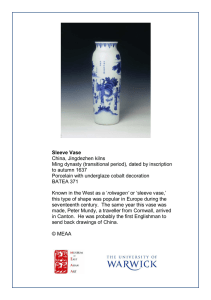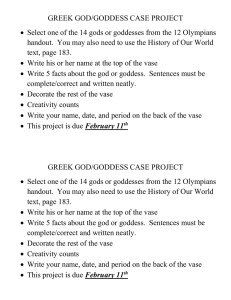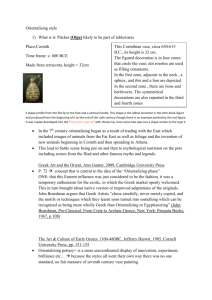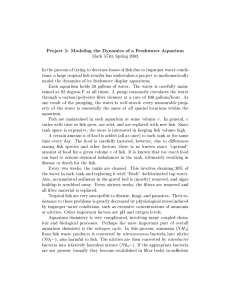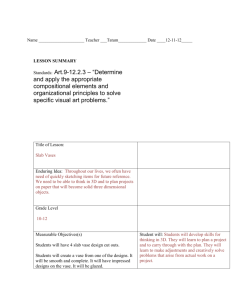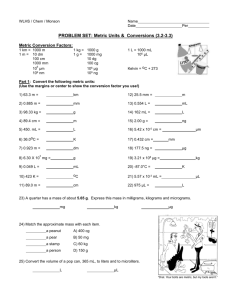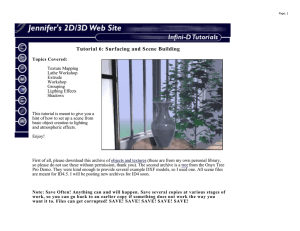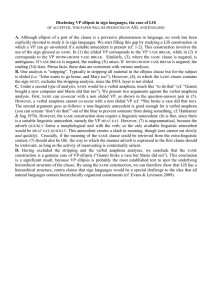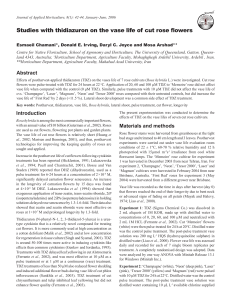File - Ms. Stenquist
advertisement
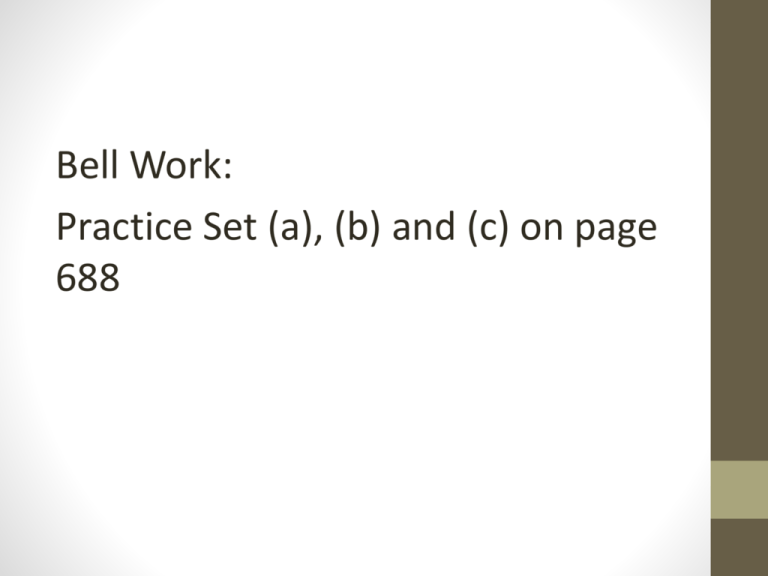
Bell Work: Practice Set (a), (b) and (c) on page 688 Answer: a) See example b) See example c) Median – box and whisker Mode – line plot Lesson 104: volume, Capacity, and Mass in the Metric System Units of volume, capacity, and mass are closely related in the metric system. The relationships between these units are based on the physical characteristics of water under certain standard conditions. We state two commonly used relationships as follows. for water under standard conditions Volume Capacity Mass 3 1 cm = 1 mL = 1 g One cubic centimeter contains 1 milliliter of water, which has a mass of 1 gram. 3 1 cm = 1 mL = 1 g For water under standard conditions Volume Capacity Mass 3 1000 cm = 1L = 1 kg One thousand cubic centimeters can contain 1 liter of water, which has a mass of 1 kilogram. Example: Ray has a fish aquarium that is 50 cm long and 20 cm wide. The aquarium is filled with water to a depth of 40 cm. a) How many liters of water are in the aquarium? b) What is the mass of the water in the aquarium? Answer: 3 Volume = 40,000 cm a) 40 Liters b) 40 Kilograms Example: Malia wants to find the volume of a vase. She fills a 1-liter beaker with water and then uses all but 280 milliliters to fill the vase. a) What is the volume of the vase? b) If the mass of the vase is 640 grams, what is the mass of the vase filled with water? Answer: a) 1000mL – 280mL = 720mL; the 3 volume is 720 cm b) Mass of the water is 720 g plus the mass of the vase 640 g is 1360 g Example: On a fishing boat, live bait is kept in a cubic tank measuring 1 meter on each edge. a) Find the volume of the tank. b) Find the capacity of the tank in liters. c) Find the approximate mass of a tank full of water in kilograms and the approximate equivalent weight in pounds.(use the approximation 1kg = 2.2lb). Answer: 3 a) 1m = 100cm = 1,000,000cm b) 1,000,000/1,000 = 1000L c) 1000kg x 2.2 = 2200 pounds The last example illustrates another volume-capacity-mass equivalent for the metric system. For water under standard conditions Volume Capacity Mass 3 6 3 1m = 10 mL = 10 kg HW: Lesson 104 #1-25
